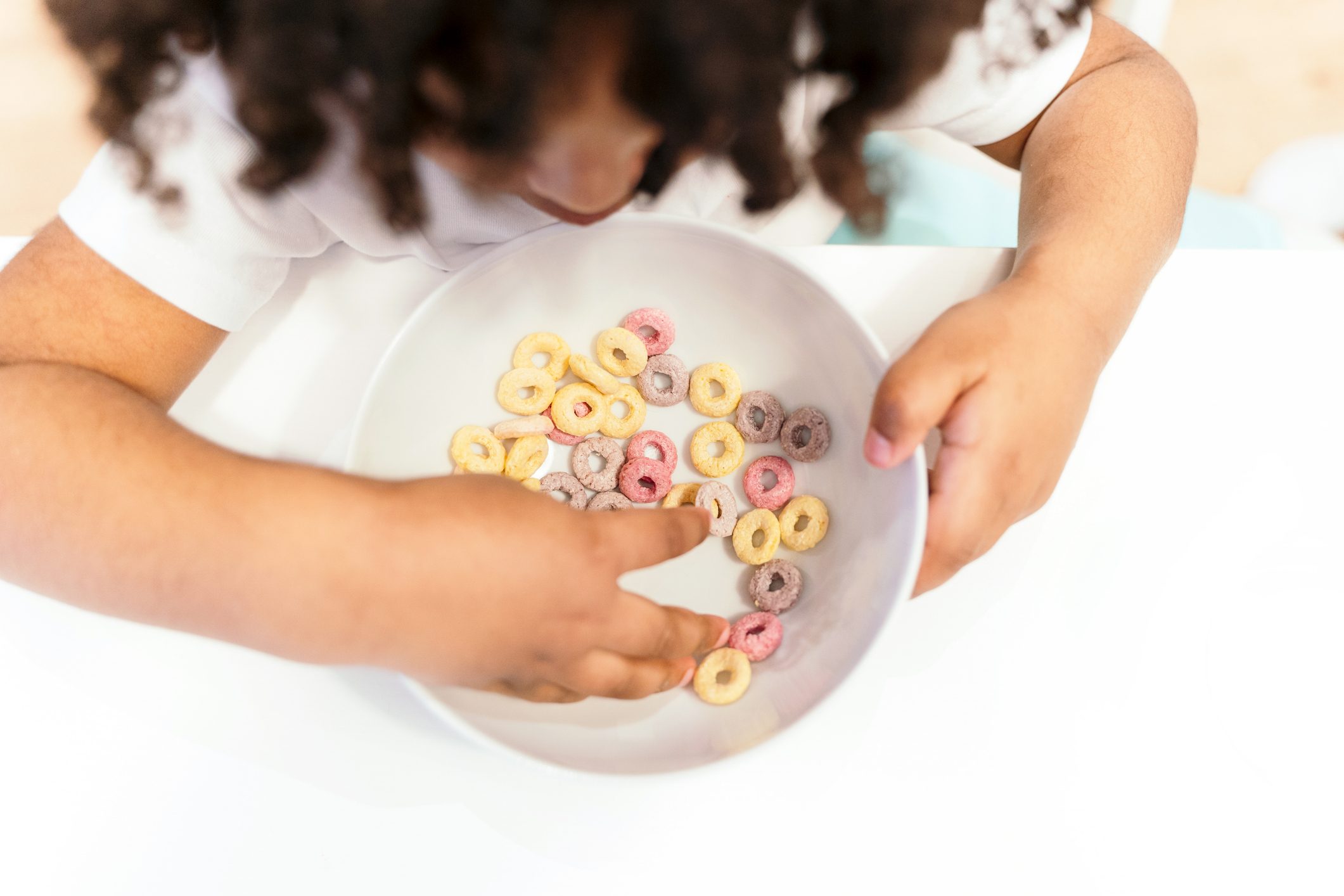The team is naming names of four companies they found "with the highest proportions of products" that also often target a certain audience.

A New Study Found Nearly 20% of Packaged Food Contains This Controversial Ingredient

If you’re looking for a straightforward approach to healthier eating, here’s one to consider: Focus on having a colorful diet—think red strawberries and tomatoes, bright orange carrots, dark green vegetables, and purple grapes or eggplant, suggests Chicago’s Rush University Medical Center. Eat the rainbow, and you’ll typically be rewarded with vitamins and nutrients.
Just be sure you’re selecting fresh or minimally processed foods when possible. In June, the Journal of the Academy of Nutrition and Dietetics published a study examining the prevalence of synthetic dyes in food and drink products commonly stocked on store shelves.
Using industry analysis company Label Insight’s data on product ingredients, the research team looked at items produced by the top 25 U.S. manufacturers in 2020. They also compared the amount of sugar, sodium, and saturated fat found in foods containing synthetic dye and those without it.
The researchers—representing the University of North Carolina, the Center for Science and Public Interest, and Australia’s The George Institute for Global Health—learned that 19% of products reviewed, or essentially one out of every five items, contained at least one synthetic dye. These dyes were mostly in products that belonged to one of three categories: sport drinks (79%), beverage concentrates (71%), and confectionery (54%).
However, carbonated drinks—30% of which contained synthetic dyes—”represented the largest proportion of total sales of products containing synthetic dyes.”
In addition, products with these additives contained 141% more sugar than those without. The biggest difference in sugar content was seen in items such as baked goods, breakfast cereals, snack bars, and fruit snacks.
Further, it was found that foods marketed to children with these dyes contained 264% higher levels of total sugar, which the researchers called a “cause for concern.” Said study author Elizabeth Dunford, PhD, in a press release: “Given the accumulation of evidence over the last 40 years pointing to the health harms of synthetic dyes, it’s disappointing to see that they’re still so prevalent in our food system, particularly in products that are designed to appeal to children.”
The study also highlighted three companies “with the highest proportions of products containing synthetic dyes”:
- Ferrero (60%), the company behind brands such as Blue Bunny, Famous Amos, and Keebler
- Mars (52%), best known for producing candy such as M&Ms, Snickers, and Skittles
- McKee Foods Corp (46%), which owns iconic baked goods brands such as Little Debbie and Drake’s
PepsiCo was also mentioned by name, as 51% of their energy drinks included these dyes.
Red 40 was the commonly used synthetic dye, though Yellow 5 and Blue 1 weren’t far behind.
Though approved by the FDA, synthetic dyes such as Red 40 have been linked to hyperactivity, including ADHD, in children, says the Cleveland Clinic. Red 40 contains benzene, a substance believed to cause cancer, and it’s also thought to potentially cause depression, irritability, asthma, skin irritation, and migraines. Last winter the Biden administration had banned Red 3 for health concerns associated with it.
Despite some notable figures, including current Health and Human Services Secretary Robert F. Kennedy Jr., using words such as “poisonous” when referring to these ingredients, other health experts offer a more measured perspective. “I think there’s a lot of fear mongering that goes on around these things but remember the poison is in the dose,” Emily Acri, MS, RDN, a clinical transplant dietitian, told Yale New Haven Health. Acri noted that instead of worrying about consuming any synthetic dyes, be more concerned about moderation. “If you’re having toaster pastries in normal amounts, it’s not going to be the end-all and be-all of your health.”
For daily wellness updates, subscribe to The Healthy by Reader’s Digest newsletter and follow The Healthy on Facebook and Instagram. Keep reading:
- New Study: People Who Ate This Type of Food Saw Lower Kidney Disease Risk
- This “Healthy” Diet May Actually Age You Faster, Says New Research
- New Research: Drinking Juice from These 2 Herbs May Improve Blood Sugar and Liver Health
- These 6 Foods Lowered Weight, Blood Pressure, and Bad Cholesterol in a Study



















